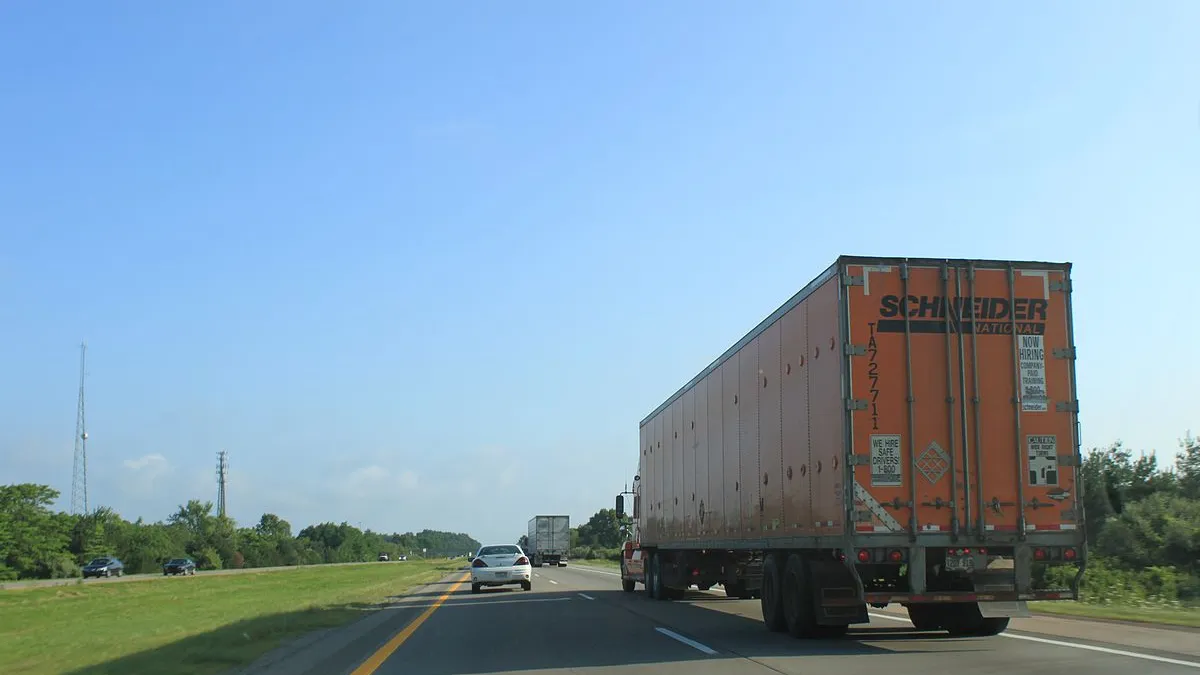Dive Brief:
- Schneider is capitalizing on a freight-aggregation trend, CEO Mark Rourke said on the company's earnings call last week. Trucking firms that can offer a variety of services across modes are better able to cater to shippers' needs, he said.
- TL uses the most assets and drivers at Schneider, Rourke said, while logistics uses the least. Intermodal falls between the two ends of what he called the "asset-intensity spectrum."
- "I think strategically ... we're under the belief that there is opportunity for multimodal providers to be a source of aggregation both on the demand side and the capacity side, because of our reach and tech investments in connection with large, medium and, increasingly now, small customers and small carriers," Rourke said.
Dive Insight:
Diversification has been key over the last year, for trucking firms withstanding pandemic-driven market volatility. Some fleets, such as Daseke, have found niches in which to haul, which supplements bigger sources of revenue. Others, such as J.B. Hunt, can reallocate resources to different portfolio segments, depending on ebbs and flows in demand.
For Schneider, its various offerings are like building blocks, which it can arrange in different configurations depending on customer needs and the carrier's availability. Sometimes, shippers convert from truck to intermodal because that's where capacity is. The reverse also occurs, Rourke said, due to increased service requirements and reliability.
"We want to make sure we're offering options and letting our customers take advantage based upon what's the most important to them," he said.
Schneider's logistics segment, which includes brokerage, offers more options, too. It delivered growth in Q1, as Rourke said revenue rose 49% YoY, and earnings improved 279%.
Rourke said he thinks third-party providers "have durability to them," which means the business it attracts has staying power. Third-party services can support a variable cost structure, which allows the business to adapt to changing markets, he said.
Schneider is building up its trailer-pool and power-only services under its logistics and brokerage arm. The carrier launched FreightPower for carriers last year, and it launched a version for shippers in Q1, the latter of which it will expand to other parts of its portfolio.
Schneider is getting hundreds of orders per day on that channel, though Rourke admitted the current market is "no doubt" giving its logistics business a boost.
Others, including J.B. Hunt, have also caught onto the stickiness of brokerage business.
J.B. Hunt continues to invest in its 360box program, in which it can procure trailers for third parties to haul and avoid additional tractor procurement. Trailer-maker Wabash sees the trucking industry trending in that broker-focused direction.
"Brokerage/asset enabled brokerage solutions is something that we are very keyed into going forward," Wabash CEO Brent Yeagy said during a recent earnings call. "And J.B. Hunt is one of those customers that is acting on the market in a way that aligns with where Wabash National sees the world going."












